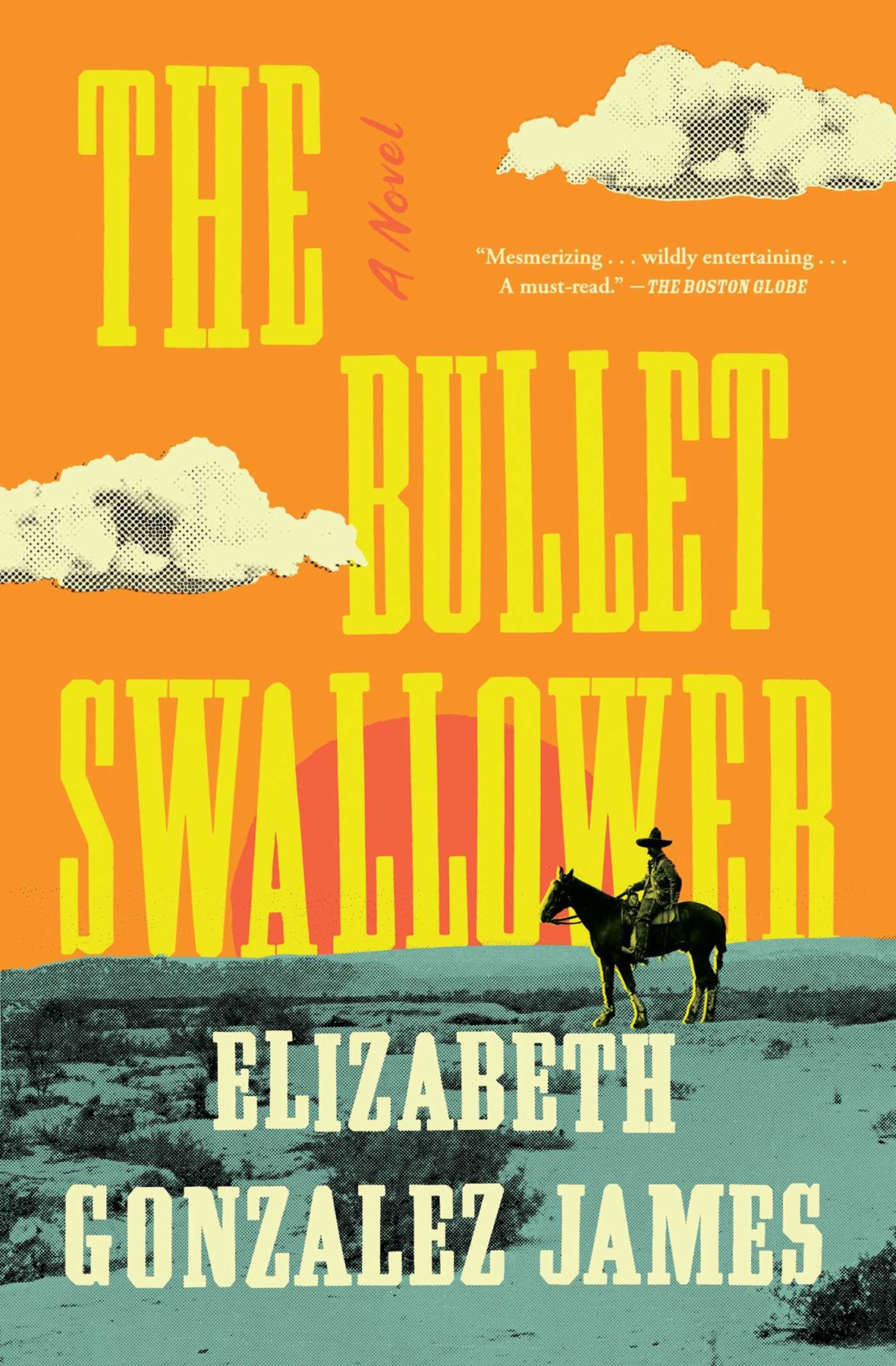

Award-winning author Elizabeth Gonzalez James will read from her novel "The Bullet Swallower" on October 7 at Harper College. (Photo by Nancy Rothstein)
Award-winning author Elizabeth Gonzalez James will visit Harper College to read from The Bullet Swallower, her critically acclaimed work inspired by her great-grandfather’s experiences as an outlaw along the U.S.-Mexico border in the 1800s.
The reading, presented as part of Harper’s Cultural Arts Lecture Series, will take place from 12:30 to 1:45 p.m. Tuesday, October 7 in the Drama Lab Theatre, Building L, Room L109, on Harper’s campus, 1200 W. Algonquin Road, Palatine.
The Bullet Swallower has garnered critical acclaim and widespread attention. It was named an honor-winner of the Jesse H. Jones Award for Best Book of Fiction by the Texas Institute of Letters, was a 2024 Book of the Month Club pick, named best book of 2024 by Esquire and NPR and featured on The Tonight Show with Jimmy Fallon as one of the show’s spring book club picks.
James fuses the extraordinary, the supernatural and historical events in The Bullet Swallower, a thought-provoking magical realist western, which explores identity, the effects of colonialism and how the actions of past generations impact their descendants.
The book’s preface sets the stage with the story of Alferez Antonio Sonoro, head of the family line and the cruel owner of a gold mine worked by indigenous people who have been pushed off their land by the Spanish.
In a fit of rage over their request for fair wages, he traps the workers deep inside of the mine, then detonates explosives, killing them. The explosion splits the Rio Grande River and redirects Sonoro’s fate, destroying his status, draining his wealth and seemingly cursing his descendants.
Decades later, his outlaw grandson, Antonio, is shot in the face by Texas Rangers during an attempted train robbery, earning him the nickname “El Tragabalas” or the bullet swallower. Antonio’s grandson, Jaime, a celebrated 20th-century movie star, later learns of his ancestors’ transgressions. The book follows both Antonio and Jaime as they grapple with the sins of their ancestors and how they impact their lives, under the urging of Remedio, a ghostly figure and generational presence.
James, who grew up in South Texas, said she became inspired to write The Bullet Swallower as tensions rose along the Texas-Mexico border a decade ago.
 “I started writing the rough draft when the 2016 presidential election was in full
swing,” she said. “I’m Mexican American, and I’m hearing them screaming, ‘Build the
wall,’ and ‘Deport them.’ I originally thought the book was going to be a pretty simple
revenge story, western shoot ‘em up, but I realized, even though the story is set
in the 1800s, a lot of the same feelings are still present today.”
“I started writing the rough draft when the 2016 presidential election was in full
swing,” she said. “I’m Mexican American, and I’m hearing them screaming, ‘Build the
wall,’ and ‘Deport them.’ I originally thought the book was going to be a pretty simple
revenge story, western shoot ‘em up, but I realized, even though the story is set
in the 1800s, a lot of the same feelings are still present today.”
James conducted extensive research and considered writing historical fiction but decided to tap into the Latin American tradition of magical realism to bring her family’s story to life.
“I wanted to stick to the facts, but it just got too limiting, and I thought, you know, I’m already talking about the devil and a magical horse and all this other weird stuff that happens,” she said. “I’m a fiction writer. I like making stuff up. It’s just more fun. I grew up hearing stories about ghosts, demons and all kinds of spooky things, and that’s the thing with magical realism. It’s true to the people who are telling the story. It’s not magical to them. It’s, ‘Well, of course, there’s a ghost of a woman who stalks the banks of the Rio Grande trying to drown children. Everyone knows that.’ You know, that's just kind of the way that people tell stories along the border.”
Harper English Professor Pearl Ratunil is teaching The Bullet Swallower in her English 102 course this semester. She said the reading is timely because it explores issues that are still relevant.
“One of the things the book talks about is how borders shift and move, and how it affects our identities,” she said. “One character says that she’s never crossed the Rio Grande, but the border has crossed over her. Meanwhile, her house always stood in the same place. Good novels like Elizabeth’s can teach history in a way that a textbook cannot. We’re able to learn about history through that one quote of the character without having to read an entire chapter about different political and policy changes. Sometimes historical novels can give us an immediate understanding of history through the character and an understanding of history that’s very personal.”
Ratunil said she is using The Bullet Swallower to teach her English 102 students the importance of research.
“The first three chapters are all research-driven,” she said. “I want students taking English 102, our research writing course, to know that research skills are for more than just writing academic papers. They can help you do creative and artistic work. In the age of AI, research skills can be seen as unnecessary and obsolete, but it’s absolutely still necessary to learn how to do research. How to incorporate research into your creativity is the job of an artist, and that's what Elizabeth does.”
Ratunil believes books like The Bullet Swallower promote cultural understanding.
“I think it’s important for students in any educational institution to learn as much as they can about different cultures, our histories, and the relationships between them,” she said. “This knowledge helps students become more conscientious and empathetic human beings, and it allows them to make choices that are informed by history.”
James hopes readers take away a new understanding of Texas border history and the idea that each generation can become better than the last.
“The narrative of Texas history that has always been presented is that the Texas Rangers were the good guys. Probably sometimes they were, but a lot of the time they were not,” she said. “They were cruel, murderous, and in some ways, the law enforcement arm of a very racist system. Second, I think the central question the book asks is, ‘Can we be better than the people who came before us?’ I think that’s the central question that we’re confronting as Americans right now. A lot of the reason we’re seeing all of this social turmoil is because there are some people who are willing to confront that question, and some who are not. I hope that by the end of the book, readers will come away with the answer that, yes, we can be better than our ancestors, but it takes a long time and it’s really difficult.”